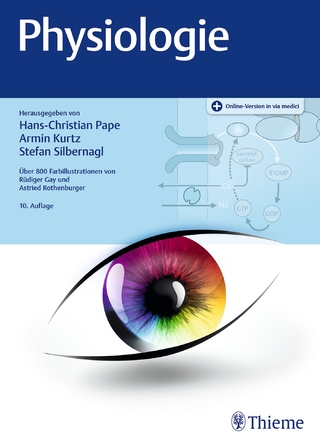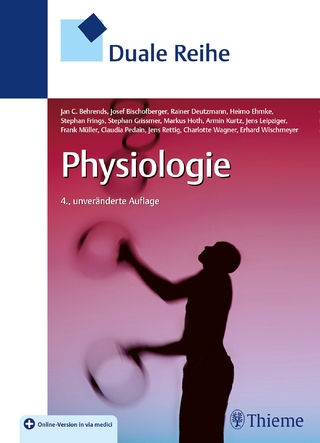
Brain Edema
Academic Press Inc (Verlag)
978-0-12-803196-4 (ISBN)
Brain edema is an integral and acutely life-threatening part of the pathophysiology of multiple cerebral and non-cerebral disorders, including traumatic brain injury, cerebral ischemia, brain tumors, cardiac arrest, altitude sickness and liver failure. Affecting millions worldwide, research over the past few years has shown that a plethora of complex molecular and cellular mechanisms contribute to this pathological accumulation of water in the brain parenchyma.
In parallel, the development of new neuroimaging tools has provided a new way to examine how edema develops longitudinally and in real time, both in pre-clinical models and in patients. Despite intense research over the past few decades, therapeutic options are still limited and sometimes not effective.
Dr. Jérôme Badaut received his PhD degree in 1999 in Neuroscience at University of Paris VI (France) after his training in the cerebrovascular field performed under supervision of Prof Lasbennes in the CNRS laboratory of Dr Jacques Seylaz. After a postdoctoral fellowship at University of Lausanne in Prof P.J. Magistretti and Prof L. Regli laboratories, he grew a strong interest on the roles of the astrocytes in neurovascular unit after stroke. He set an international expertise on the role of the astrocytic water channels in edema processes after brain injuries and also in other functions such as brain energy metabolism, when he was group leader in Neurosurgery departments at Lausanne and then Geneva (Switzerland). Then, he started to inquiry the role of neurovascular unit in pediatric traumatic brain injury when he held position of assistant professor in departments of pediatrics and physiology of the school of medicine in Loma Linda University (CA, USA). Dr Badaut is now tenured research officer at The National Center for Scientific Research (CNRS, France) in “Institut des Neurosciences Cognitives d’Aquitaine (INCIA, UMR5287 CNRS-University of Bordeaux). He is leading the Brain Molecular Imaging group, a multidisciplinary team working on the development of new biomarkers in the field of brain injuries with for focus traumatic brain injury and neurovascular dysfunction. Dr. Plesnila studied medicine in Regensburg and Munich, Germany, and spend the first few years of his scientific carrier working on the molecular mechanisms of astrocytic cell swelling in the laboratory of Axel Baethmann at the Institute for Surgical Research, Munich, Germany. After a post-doctoral fellowship at Harvard Medical School, he expanded his research interests to traumatic brain injury and cerebral ischemia in vivo. After research professorships at the Department of Neurosurgery in the University of Munich and at the Royal College of Surgeons in Ireland (RCSI), Dr. Plesnila’s laboratory for experimental stroke research is presently located at the Institute for Stroke and Dementia Research (ISD) at the University of Munich Medical Center. His research focus is the role of cerebral vessels including the blood-brain barrier and inflammation after brain damage.
Introduction: Brain edema formation - significance for patient outcome
Section 1. General Introduction 1. Physiology of cerebral blood vessels 2. Blood-brain interfaces organization in relation to inorganic anion transport, CSF secretion and circulation
Section 2. Techniques to investigate cerebral blood 3. Imaging techniques for brain edema: from basic science to the clinic 4. Experimental techniques to investigate the formation of brain edema in vivo 5. In Vitro Models of the Blood-Brain Barrier to Better Understand the Pathophysiology of Brain Edema
Section 3. Molecular basis and concepts in brain edema formation for new treatment development 6. The extracellular and perivascular spaces of the brain 7. Blood brain barrier mechanisms of edema formation: The role of ion transporters and channels 8. Mechanisms of cell volume regulation in the central nervous system 9. Role of aquaporins for the formation and resolution of brain edema 10. Sur1-Trpm4 - promising target for brain edema treatment 11. Role of Matrix Metalloproteinases in Brain Edema
Section 4. Brain edema process in pre-clinical models 12. Edema and BBB Breakdown in Stroke 13. Brain edema formation in traumatic brain injury 14. Spinal cord edema after spinal cord injury: From pathogenesis to management 15. Brain Edema in Acute Liver Failure 16. Blood-Brain Barrier and Edema in Brain Tumors 17. Water homeostasis dysfunction in epilepsy 18. Water homeostasis dysfunctions and edema in neuroinflammatory disease 19. Experimental therapies for brain edema and intracranial hypertension
Section 5. Clinical features and management of brain edema 20. Clinical monitoring of brain edema 21. Brain edema in developing brain diseases 22. Cerebral edema in cerebrovascular diseases 23. Traumatic brain injury and edema treatment 24. Treatment of edema formation in oncology 25. Perspectives on future translational research on brain edema
| Erscheinungsdatum | 21.07.2017 |
|---|---|
| Verlagsort | San Diego |
| Sprache | englisch |
| Maße | 152 x 229 mm |
| Gewicht | 1000 g |
| Themenwelt | Medizin / Pharmazie ► Medizinische Fachgebiete ► Neurologie |
| Studium ► 1. Studienabschnitt (Vorklinik) ► Physiologie | |
| Naturwissenschaften ► Biologie ► Humanbiologie | |
| Naturwissenschaften ► Biologie ► Zoologie | |
| ISBN-10 | 0-12-803196-4 / 0128031964 |
| ISBN-13 | 978-0-12-803196-4 / 9780128031964 |
| Zustand | Neuware |
| Haben Sie eine Frage zum Produkt? |
aus dem Bereich


